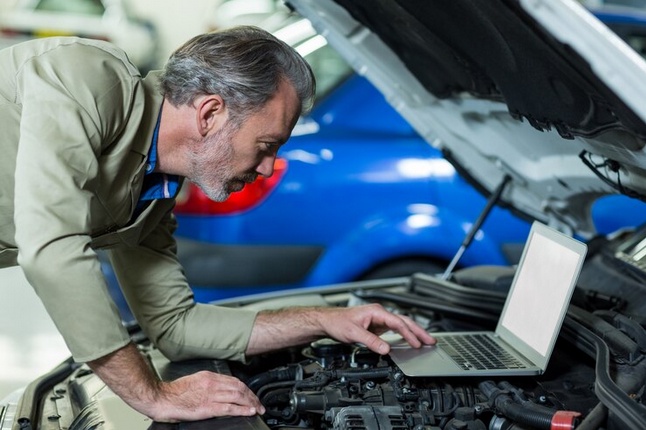Introduction
Automotive electrical systems play a crucial role in the overall functionality of a vehicle. From powering the ignition to operating the lights and accessories, electrical components are essential for a smooth and safe driving experience. However, electrical issues can arise, causing frustration and inconvenience. While it's always recommended to seek professional help for complex electrical repairs, there are certain DIY tasks that you can undertake with the right knowledge and precautions. In this article, we will provide expert tips for DIY electrical repair automotive, empowering you to tackle minor electrical problems and save both time and money.
1. Safety First
Before attempting any electrical repairs, it's essential to prioritize safety. Here are some key safety tips to keep in mind:
- Disconnect the Battery: Always disconnect the vehicle's battery before working on any electrical components. This will prevent the risk of electrical shock and short circuits.
- Wear Protective Gear: Use safety gloves and goggles to protect yourself from potential hazards, such as sparks or accidental contact with live wires.
- Work in a Well-Ventilated Area: Ensure that you have proper ventilation to avoid inhaling harmful fumes or gases.
- Use Insulated Tools: Invest in high-quality insulated tools to minimize the risk of electrical shock.
- Read the Vehicle's Manual: Familiarize yourself with the electrical system of your specific vehicle by reading the owner's manual. This will provide valuable information on fuse box locations, wiring diagrams, and safety precautions.
2. Diagnosing Electrical Issues
Before attempting any repairs, it's crucial to accurately diagnose the electrical issue. Here are some steps to follow:
2.1. Identify the Problem
Pay attention to the specific symptoms or issues you are experiencing. Is it a dead battery, malfunctioning lights, or a faulty accessory? Understanding the problem will help you narrow down the potential causes.
2.2. Check the Fuses
Faulty fuses are a common cause of electrical problems. Use a multimeter or a fuse tester to check the fuses in the fuse box. Replace any blown fuses with the correct amperage rating.
2.3. Inspect Wiring Connections
Loose or corroded wiring connections can cause electrical malfunctions. Inspect the wiring harnesses, connectors, and terminals for any signs of damage or poor connections. Clean or tighten them as necessary.
2.4. Test the Battery
A weak or dead battery can lead to various electrical issues. Use a voltmeter to test the battery's voltage. If it's below the recommended level, consider recharging or replacing the battery.
2.5. Utilize Diagnostic Tools
Investing in an OBD-II scanner or a code reader can help you identify any stored error codes in the vehicle's computer system. These codes can provide valuable insights into the underlying electrical issues.
3. Common DIY Electrical Repairs
While major electrical repairs are best left to professionals, there are several minor repairs that you can tackle yourself. Here are some common DIY electrical repairs:
3.1. Replacing Bulbs and Fuses
If you have a burnt-out bulb or a blown fuse, these are simple repairs that you can handle. Refer to your vehicle's manual to locate the specific bulb or fuse and follow the instructions to replace them.
3.2. Repairing Wiring Issues
If you have identified a wiring issue, such as a frayed or broken wire, you can attempt to repair it. Cut out the damaged section and use electrical tape or soldering to reconnect the wires securely.
3.3. Fixing Loose Connections
Loose connections can cause intermittent electrical problems. Use a wrench or pliers to tighten any loose nuts, bolts, or connectors. Ensure that the connections are secure but not over-tightened.
3.4. Cleaning Corroded Terminals
Corrosion on battery terminals or electrical connectors can hinder proper electrical flow. Use a wire brush or a battery terminal cleaner to remove the corrosion and ensure a clean connection.
3.5. Installing Aftermarket Accessories
If you're looking to add aftermarket accessories, such as a new stereo system or LED lights, it's possible to install them yourself. Follow the manufacturer's instructions carefully and ensure proper wiring and connections.
Frequently Asked Questions (FAQ)
Q1: Can I replace a blown fuse with a higher amperage fuse?
A1: No, it's crucial to replace a blown fuse with the correct amperage rating specified by the manufacturer. Using a higher amperage fuse can lead to electrical damage or even fire hazards.
Q2: How can I prevent electrical issues in my vehicle?
A2: Regular maintenance, such as checking the battery, cleaning terminals, and inspecting wiring connections, can help prevent electrical issues.### Q3: Is it safe to jump-start a vehicle with a dead battery?
A3: Jump-starting a vehicle is generally safe as long as you follow the correct procedure. Ensure that the jumper cables are connected properly and that the donor vehicle's engine is running. Be cautious of sparks and avoid touching the metal ends of the jumper cables together.
Q4: What should I do if my headlights are dim or flickering?
A4: Dim or flickering headlights can indicate a problem with the electrical system. Start by checking the headlight bulbs for any signs of damage or corrosion. If the bulbs are fine, it may be an issue with the wiring or the alternator. Consider seeking professional help for a thorough diagnosis.
Q5: Can I use any type of electrical tape for repairing wires?
A5: It's recommended to use electrical tape specifically designed for automotive applications. This type of tape is more resistant to heat, moisture, and vibrations, ensuring a secure and long-lasting repair.
Conclusion
By following these expert tips, you can confidently undertake minor DIY automotive electrical repairs. Remember to prioritize safety, accurately diagnose the issue, and proceed with caution. However, for complex electrical problems or if you're unsure about any repair, it's always best to consult a professional automotive electrician. With the right knowledge and precautions, you can save both time and money while ensuring a safe and reliable electrical system in your vehicle.


No comments yet